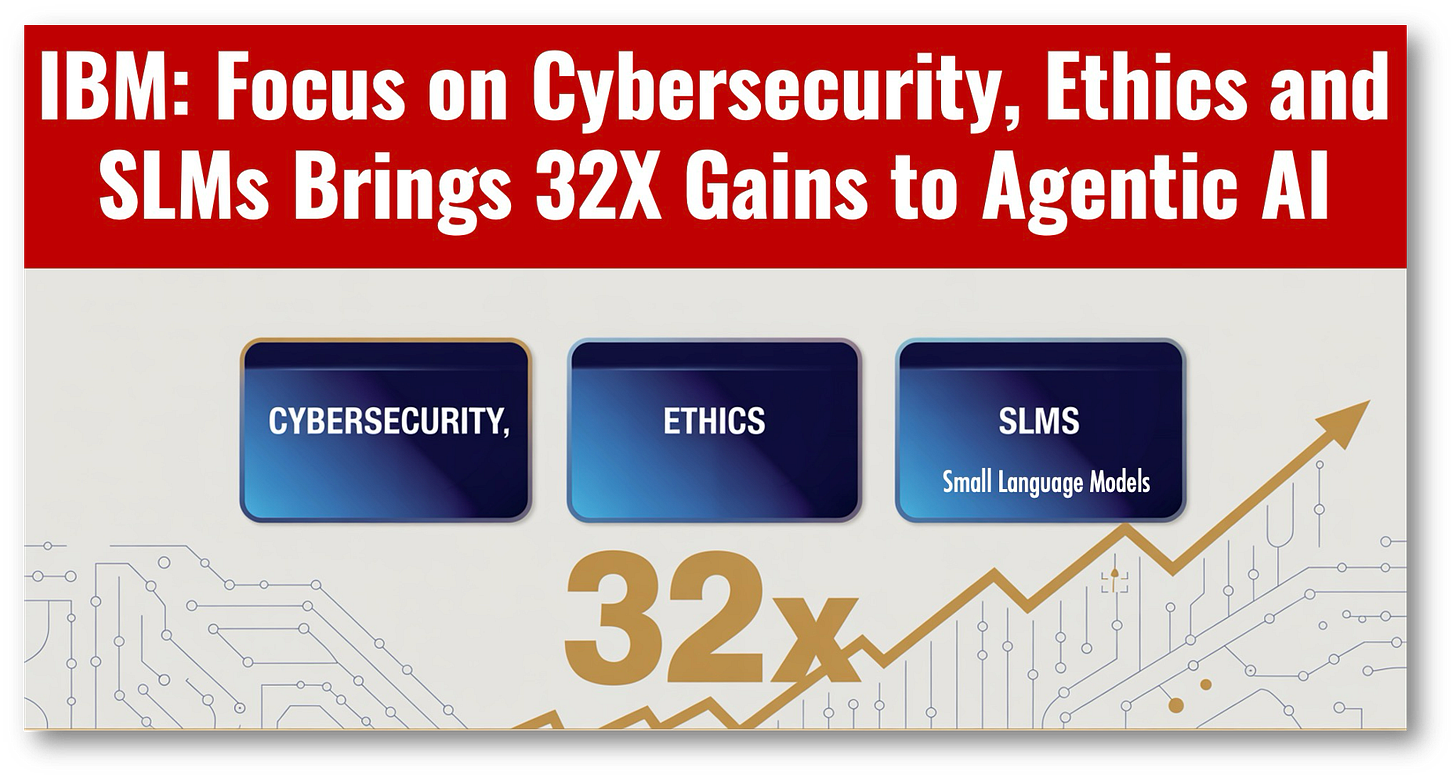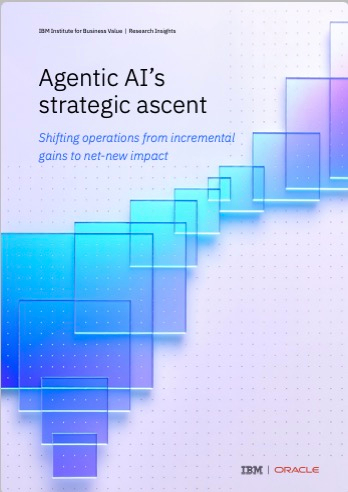IBM: Focus on Cybersecurity, Ethics and SLMs Brings 32X Gains to Agentic AI
Meanwhile, 72% are wasting time using AI to improve existing processes
This is my daily post. I write daily but send my newsletter to your email only on Sundays. Go HERE to see my past newsletters.
IBM looks at Agentic AI’s ascent and shows how companies seeking to achieve “top-tier business performance” get a 32X boost if they excel in: cybersecurity, ethics, and small language models.
Note that this week I wrote about the need to focus on AI ethics, and that it shows up in this IBM report as a key feature for successful programs shows its importance!
What is interesting is why IBM thinks ethics are so important.
IBM states that ethics goes beyond doing the right things, but is crucial to preventing autonomous agents from making decisions that conflict with human values at speed and scale.
In short, if you build an ethical AI, you build one whose decisions are laser-focused so they are more likely to be fair, accountable, and transparent.
A focused AI is less likely to be allowed to make a wrong decision!
This takes us to one of the more surprising success factors: the focus on industry-specific small language models (SLMs).
According to IBM, small language models allow AIs to understand business jargon and help make agentic AI systems truly effective in real business environments.
We haven’t read a lot about small language models and their use in agentic AI.
Following the necessity to focus or constrain agents with ethics, we see a need to constrain agents’ language skills to those relevant to the industry.
Having your AI misunderstand the term “haircut,” a reduced price, as used in finance for shortening hair, could be embarrassing.
IBM also shows a stunning disconnect between what companies are doing and what the C-suite is thinking.
75% of execs say most of their AI investment is focused on improving existing processes, while 78% of C-Suite execs say achieving maximum benefit requires a new operating model.
The conflict is so glaring it’s stunning.
The C-suite has no one to blame but themselves!
👉IBM’s Three Critical Drivers For a 32X Lift in Business Performance
🔹 Integrating cybersecurity into AI initiatives.
When AI systems can make decisions independently, the cybersecurity stakes change entirely. These autonomous agents don’t just process data—they act on it, multiplying both their potential impact and their vulnerability to exploitation.
🔹 Embedding ethics analysis in AI deployments.
Building ethics analysis into agentic AI isn’t just about doing the right thing—it’s about preventing these autonomous systems from making decisions that conflict with human values at machine speed and scale. Without proper ethical guardrails, AI agents can inadvertently perpetuate biases, violate privacy, or make choices that seem logical to an algorithm but feel fundamentally wrong to the people affected. Ethics analysis creates the framework that keeps autonomous decisions aligned with fairness, accountability, and transparency.
🔹 Implementing workflow-specific small language models.
Workflow-specific small language models are the specialized translators that make agentic AI systems truly effective in real business environments. Rather than relying on generic AI that struggles with industry jargon and unique processes complexities (like real-time integrated planning), these tailored models understand the specific terminology, procedures, and context that define how work actually gets done.
HAND CURATED FOR YOU
🚀 Every week I scan thousands of articles to find only the best and most valuable for you. Subscribe to get my expertly curated news straight to your inbox each week. Free is good but paid is better.




